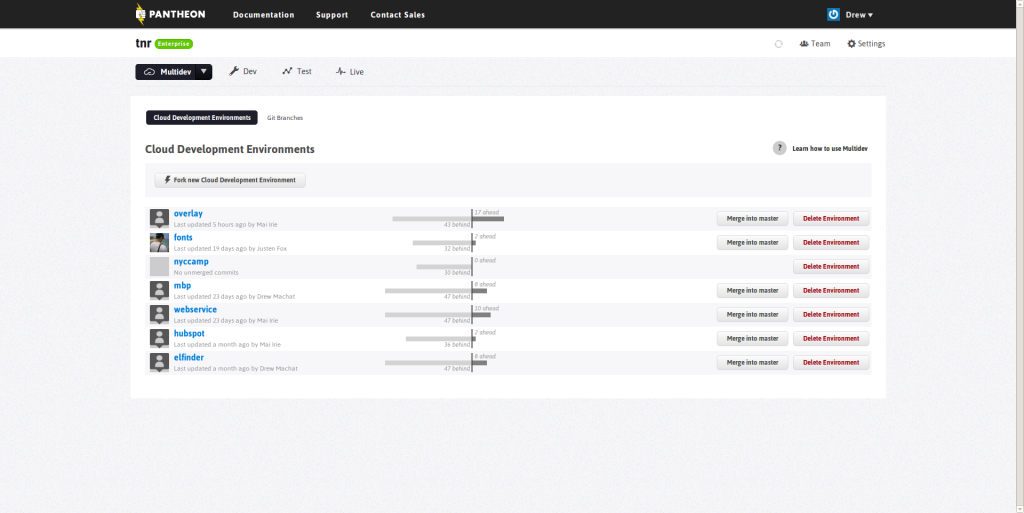Partner and Drupal-based cloud platform Pantheon recently released Multidev, a new feature that makes it easy for large development teams to collaborate without delays and confusion. It received fanfare, and here at Alley, we’ve used Multidev to manage some of our complex development workflows.
Alley Interactive developer Drew Machat explains how a tool like Multidev helps his team execute on tight deadlines while allowing for the creativity required to build solutions for some of the world’s top content publishers.
Pantheon has always made it easy to test out what we develop. With a click of a button, you have a new Drupal site. Another click or two and you’ve just pushed code to a staging site for client review, or a QA’d batch of commits into production. Onerous server configuration overhead was no longer a problem.
As developers, we’ve all had the experience of being under deadline and working within a substandard dev environment. Our clients often need time to see and test new features, including large functionality overhauls, and we need the ability to make small changes that could go live on short notice. This can result in complications to the deployment process.
Multidev helps developers simplify the deployment process in larger projects. Multidev doesn’t just support branching — it matches each git branch to its own isolated development server so our team can atomically test code, effectively isolate problems and resolve them.
Multidev is great because:
- We can segment workflows for sites that have distributed contributors and a need for flexibility among team members.
- The database is also part of the Multidev sandbox, and we don’t have to worry about uninstalling unneeded modules or rolling back the schema change of an upgrade. Each Multidev becomes its own sandbox with a fresh clone of the database where we can safely run updates, create new schemas or modify existing data.
- Clients often request experimental changes in their site. We have the freedom to experiment with feature implementation in a safe, managed environment. We can easily demo different options to a client at the same time, or just tuck away a branch that will need some time for review and revisions.
The New Republic team asked us to improve the media management system and demo it using several different modules so they could pick the best option for their editors. Each option required the installation of a new module, upgrades to existing modules for compatibility, and various database and settings changes.
With Multidev, we easily built and tested new branches, and merged them into our production sites — assured of compatibility with the server and the database. We didn’t have to waste time setting up a new server, or debugging problems that arose because of non-matching configs. By removing complications, we were able to produce new features faster, deploy them more reliably and build the best site possible.
